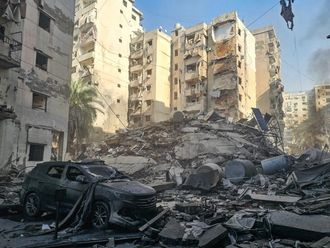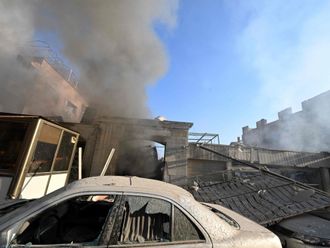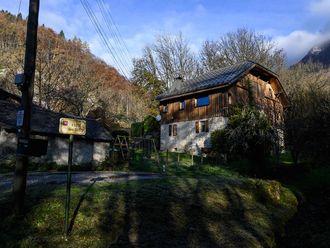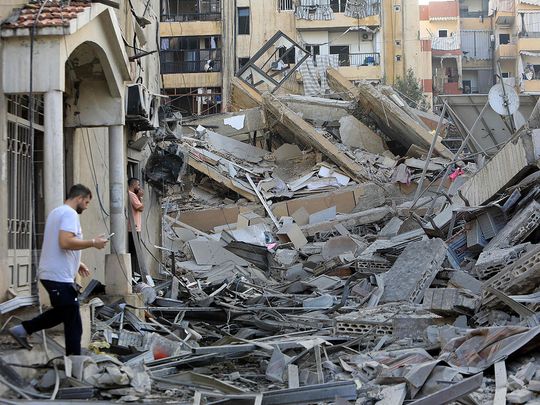
Beirut, Lebanon: Sipping a coffee in front of a blaring television as black smoke rose from the rubble nearby, Ali Mahmoud, 63, recounted a night of terror in Beirut's southern suburbs.
"We were at the coffee shop when we heard the strikes," he said early on Sunday.
"We whisked our families out of the suburb into the city. We were scared like everybody else."
Mahmoud said he had come back to see what state his home was in, and to collect a few belongings for relatives who were now sleeping in the street.
Many of the 850,000 residents of the stronghold of Lebanese militant group Hezbollah have fled their homes since Israel ramped up its air strikes targeting Lebanon on September 23.
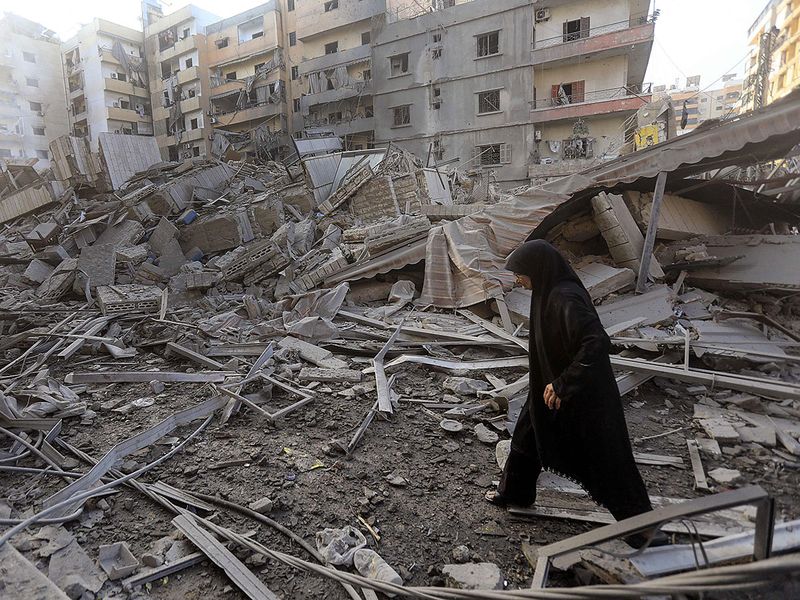
But each morning after the air raids, some semblance of normal life returns for a few hours before the bombardment begins again.
Residents arrive on foot or by moped from other parts of the capital where they have sought refuge, and where they often sleep out in the open.
On Sunday morning, residents gathered what they could from their homes or supplies from small shops as Israeli drones buzzed loudly overhead.
People passing near Beirut airport in the south of the city were met by clouds of black smoke and the smell of burning.
'Endless nightmare'
On the old airport road, an important thoroughfare that everybody now tries to avoid, diggers worked to remove new rubble.
In another district south of the capital, vegetable shop owner Mehdi Zeiter, 60, said he and his family had not slept all night but would be staying put.
"The strikes were like an earthquake. Each time they bombed, our building shook," he said.
"It was the most violent night... there were strikes everywhere. They are not hitting military targets, but civilian ones," he said.
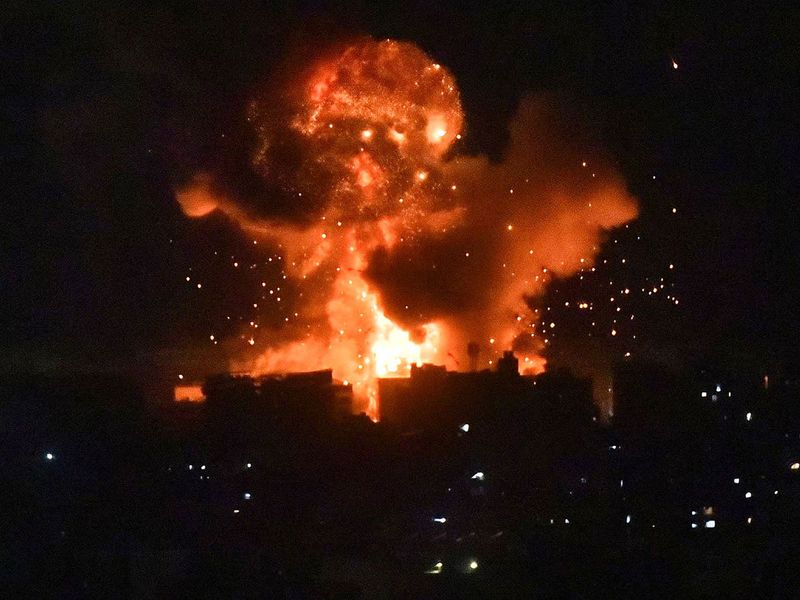
Around the southern suburbs, everybody tells the same story.
During the 2006 war between Israel and Hezbollah, Israeli warplanes targeted the Shiite militant group's headquarters, so residents kept clear of those areas.
But nowhere seems safe now.
Piles of debris, collapsed buildings and shuttered shops can be seen all across Beirut's southern suburbs.
The latest escalation has killed more than 1,100 people and wounded at least another 3,600 nationwide, and pushed upwards of a million people to flee their homes, according to government figures.
Among those who have been become displaced is 30-year-old mother Salma Salman.
"We spent the night in a beauty salon owned by one of my father's friends," she said, hugging her seven-year-old twin daughters.
"It's an endless nightmare."



